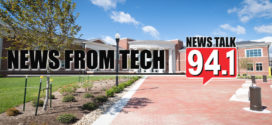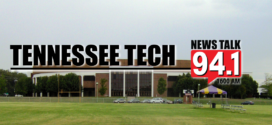Tennessee Tech launching a new Responder Health Lab to provide research on the physical and mental effects for emergency first responders.
Assistant Psychology Professor Dr. Derrick Edwards said originally, most first responder research focused on the military. He said research on EMS, Fire, and Police personnel increased after 9/11.
“Giving them some assistance, some real-world assistance, and some backing,” Edwards said. “If they need us to review something for them before they submit it we are glad to do that as well, but also studying everything from cancer to mental health, so we are kind of all things emergency responder.”
The lab will work with first responder departments across the Upper Cumberland to provide the information needed to obtain grant funding. Edwards said the university has allowed the first responder research to reach a new level of understanding.
“It has been such a blessing to have the backing of a university,” Edwards said. “And to have the research capabilities that we have to better help these people that I work alongside with.”
Edwards said the lab studies cancer risk for firefighters as Tennessee’s Brady Act does not cover Volunteer firefighters for physical impairment during duty.
“In order to qualify for the Brady Bill you have to be a career firefighter,” Edwards said. “Yet over two-thirds of all firefighters in the United States are volunteer status, and in Tennessee, that number is significantly higher and it approaches nearly 80 percent, so that’s such a discrepancy that we have not studied a lot about, so being able to go to these departments to gather biological samples and to evaluate real-world cancer risks has been a real success in the Upper Cumberland.”
The lab is also studying the case of female firefighters having a lower fertility rate than non-firefighter females. Edwards said the lab is a great opportunity for Tech psychology majors to complete their senior thesis component. The lab currently has one graduate assistant and the university is looking to add one more soon.
 News Talk 94.1/AM 1600 Where The Upper Cumberland Talks
News Talk 94.1/AM 1600 Where The Upper Cumberland Talks







